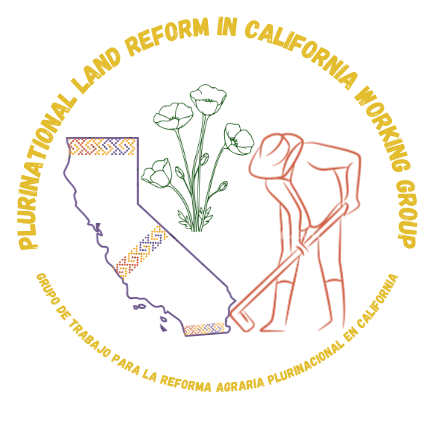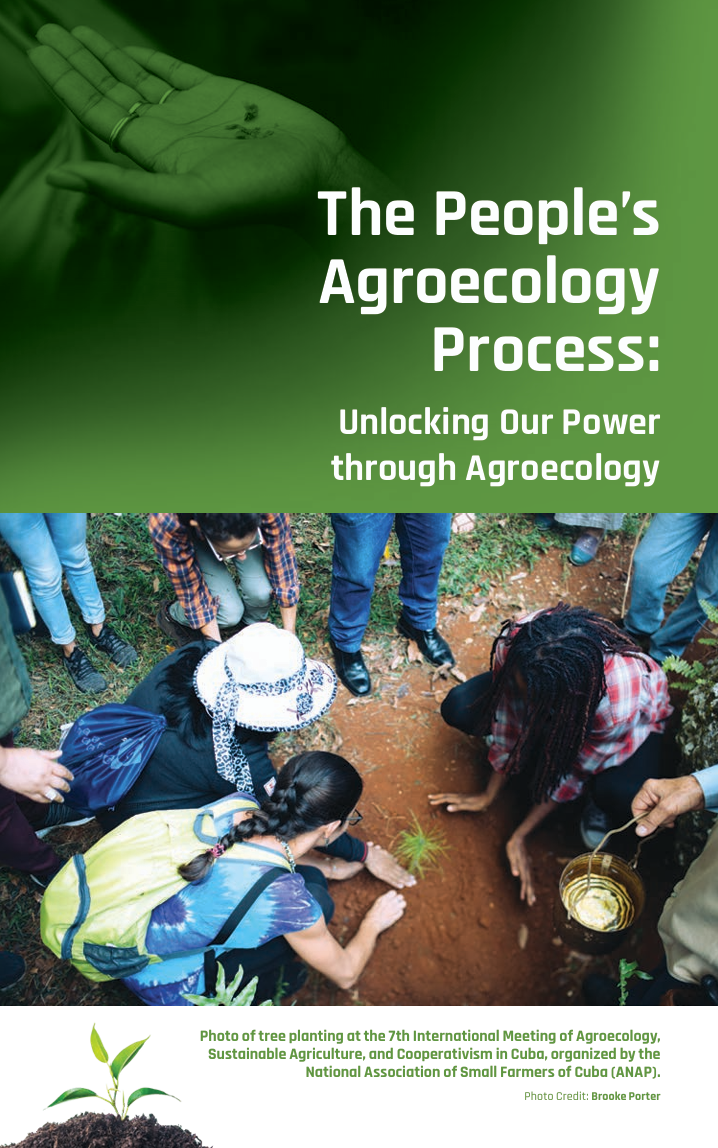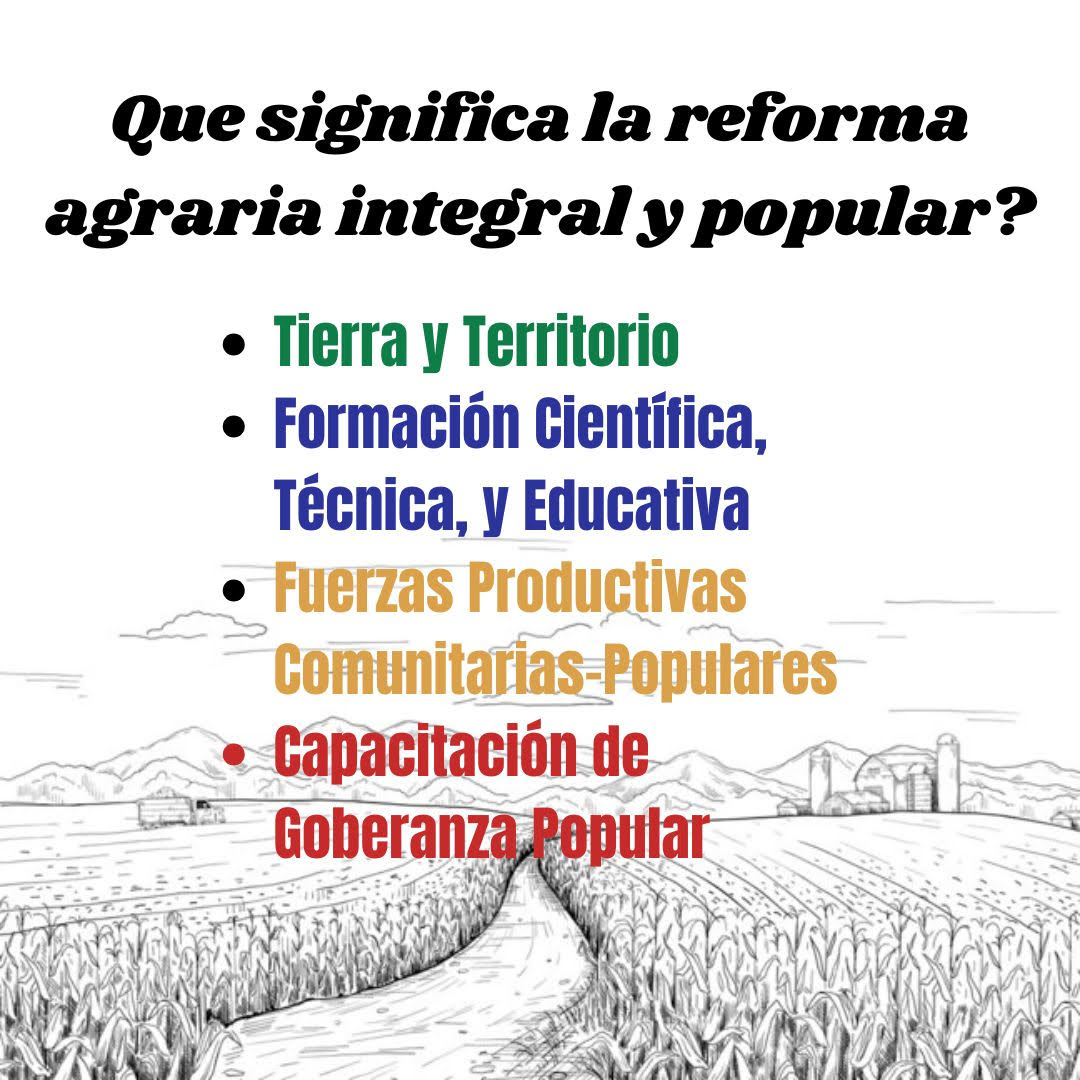Agroecological Training & Leadership Development
Our agroecological training program integrates technical farming practices with political education and community organizing strategies. We recognize that successful land reform requires not just agricultural skills, but also the ability to navigate political systems, build community power, and develop sustainable economic models.
Land-Based Management Approach
Our approach to agroecology begins with our detailed land suitability analysis, which informs how we design management plans tailored to specific ecological contexts. This science-based foundation ensures that our agricultural training is rooted in the unique characteristics of each landscape.
Ecological Farm Design
Training in reading landscape patterns and designing agricultural systems that work with natural processes rather than against them. Includes mapping water flows, identifying ecological niches, and planning integrated production systems.
Soil Health & Management
Techniques for assessing soil conditions, building organic matter, managing soil biology, and implementing erosion prevention. Emphasis on low-external-input methods accessible to resource-limited farmers.
Water Systems Design
Training in water harvesting, conservation, and distribution systems appropriate to California's diverse microclimates. Includes strategies for drought resilience and efficient irrigation methods.
Our technical training emphasizes accessible, low-cost methods that reduce dependency on external inputs and build ecological resilience. We prioritize approaches that can be implemented by communities with limited resources but rich in traditional knowledge and labor capacity.
The People's Agroecology Process
Our training approach draws from the People's Agroecology Process, which recognizes that agroecology is not just a set of farming techniques but a political, social, and economic movement. This framework emphasizes:
Click on the image below to view the full People's Agroecology document (PDF)
Political Education
Understanding the political economy of land and agriculture, including historical patterns of dispossession, current power structures in food systems, and strategies for policy change.
Collective Organization
Building democratic structures for collective decision-making, resource sharing, and cooperative land management. Includes training in cooperative governance models and conflict resolution.
Cultural Recovery
Reclaiming traditional agricultural practices, food ways, and cultural relationships to land that have been disrupted by colonization and industrial agriculture.
Economic Alternatives
Developing solidarity economies, cooperative markets, and alternative value chains that keep wealth within communities and fairly compensate agricultural labor.
Through this holistic approach, participants develop not just farming skills but also the political analysis and organizational capacity needed to advance systemic change in land relationships.
Understanding the Political Economy of Land
A crucial component of our training involves political education about the structures that shape land access and control in California. Participants learn about:
- Historical processes of indigenous land dispossession and their ongoing impacts
- The role of racial exclusion in shaping current land ownership patterns
- How agricultural policy favors large-scale industrial production over small-scale agroecological farming
- The influence of speculative investment and financialization on land markets
- Key players in California's agricultural system, from large landowners to processing companies to policy makers
- Successful examples of land reform and agroecological transitions from around the world
This political education helps participants understand their individual struggles for land access within broader systemic contexts, and identifies potential leverage points for collective action.
Farmworker Consciousness-Raising on Agrarian Reform
A crucial component of our agroecological training is consciousness-raising among farmworkers about the principles and possibilities of comprehensive agrarian reform. We believe that technical agricultural skills must be paired with a deep understanding of land justice and the structural changes needed to create equitable food systems.
Drawing from the experiences of agrarian movements across Latin America, we have developed educational materials that explain key concepts of integral and popular agrarian reform in accessible language. These materials explore:
- The distinction between land (tierra) and territory (territorio) from indigenous and peasant perspectives
- The importance of indigenous-peasant alliances in building political power
- Pathways for identifying and reclaiming underutilized land
- Community-based productive forces and solidarity economies
- Democratic governance models for agricultural communities
Click on the image below to view our full "Reforma Agraria Integral y Popular" guide (PDF, Spanish)
These consciousness-raising materials recognize that many farmworkers in California come from regions with strong agrarian reform histories and movements. By connecting with these cultural and political traditions, we help farmworkers see their current struggles in historical context and imagine alternatives to the current land system.
Our workshops on agrarian reform consciousness include:
- History of Land Dispossession: Examining the colonial origins of current land distribution and the ongoing effects on indigenous and farming communities
- Comparative Land Reform Models: Learning from successful examples in Latin America and other regions
- Legal Frameworks: Understanding current land use policies in California and opportunities for reform
- Community Mapping: Identifying land in their regions with potential for reclamation and agricultural use
- Movement Building: Developing strategies for coalition building with indigenous communities, environmental groups, and policy advocates
This consciousness-raising work is conducted in multiple languages, with particular attention to indigenous languages from Mesoamerica and South America. We recognize the importance of linguistic and cultural accessibility in building truly inclusive movements for land justice.
Community Organizing for Land Defense
Acquiring land is only the first step in a long-term process of building food sovereignty. Our training includes strategies for organizing communities to defend land rights and build sustainable agricultural livelihoods. Participants learn:
- How to build coalitions with allied organizations and movements
- Effective communication strategies for countering dominant narratives about land and agriculture
- Legal tools and resources for protecting land rights
- Participatory methods for community decision-making about land use
- Strategies for navigating conflicts with powerful interests
- Building intergenerational leadership and knowledge transmission
This organizing component is especially critical given the powerful interests that often oppose land reform and agroecological transitions. Communities need not just farming skills but political organizing capacity to successfully challenge entrenched power structures.

Community members developing organizing strategies for land defense and agroecological transition
Training Formats and Accessibility
Our training is offered in multiple formats to meet the diverse needs of agricultural communities:
- Hands-on Field Workshops: Practical training sessions on working farms and lands
- Popular Education Sessions: Participatory learning that values participants' existing knowledge and experiences
- Farmer-to-Farmer Exchanges: Peer learning opportunities between experienced and new farmers
- Youth Education Programs: Specialized training for young people interested in agricultural careers
- Train-the-Trainer Programs: Building local capacity for ongoing education within communities
We are committed to making our training accessible to those who have been most marginalized within the current agricultural system, particularly farmworkers, indigenous communities, and black tenant farmers with limited access to land and resources.


